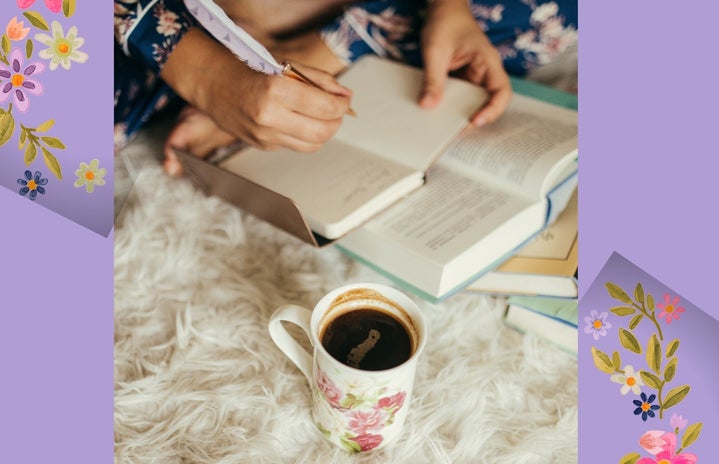So you fancy picking up journaling? Or has your Tiktok told you that it will fix all your emotional turmoil? Either way, my job is to keep you here and give you a reason to pick up your notebook and pen (or laptop) and write yourself to oblivion.
1. Phone detox
The first reason (and my favourite reason) to journal is to allow yourself a chunk of time every day that is phone-free. This especially applies to people that use their phones during work hours – it can get both exhausting and addictive at the same time and that is a truly deadly combo. I don’t need to get into all the research that tells us that we are an age of screen addicts; we all know it but find it impossible to change. So, my challenge for you is to keep your phone off or away from you when journaling.
Just picture it: you wake up in the morning and pick up a pen and paper instead of your phone. You set out your intentions for the day instead of watching other people reach theirs whilst squinting at the screen. Or maybe you pick up your journal before bed reflecting on the day you’ve had rather than staying up for hours whilst thinking about how much better everyone else’s day seems to have been.
I think you get the point. A pen and paper, along with your thoughts, is a much nicer way to spend your quiet moments.
2. Reaching your goals
Studies (and personal experience) tell us that setting our goals in SMART (specific, measurable, attainable, realistic, and time-sensitive) ways will increase our chances of success and journaling fits into this beautifully. Though it’s on a smaller scale than your average 5-year plan, your daily intentions can be a brilliant way to set up a mindful goal for your day that you remember throughout the day to motivate yourself.
Some examples include ‘Today I intend to do a rough tidy around the house’ or ‘Today I intend to move my body in a way that benefits me’. Notice that these goals aren’t as specific as your SMART goals because sometimes those can feel like a little too much pressure. Instead setting an intention is a flexible but firm way of reminding yourself of a few actions that you could do to improve your day. The feeling when you get to the end of the day and know you achieved the single intention you set yourself is *chef’s kiss*.
If you wanted to go even further, you could set yourself an ‘Intentional Feeling’ for the day. I had recently added this to my practice and referred to it when I began to slump in the afternoon. Just in simply reminding myself that I intended to feel capable or energised or kind, I find myself straightening my posture a little and making a little more effort to live the day how I had intended.
3. Avoiding rumination and aiding processing
It isn’t uncommon for things to go awry even when we think that we have the perfect plan and sometimes these situations can lead to us overthinking our actions for far too long which only drains our energy. Whether you choose to journal in the morning, at night, or both, your writing gives you a chance to process events and leave them behind when you put down your pen. You may not be able to process bigger things in one sitting but you are now able to move on with your life whilst having a comfortable space to process past events that might otherwise hinder your present and future.
4. Many specific areas can be improved
Depending on the type of journaling that you decide to use, there is a multitude of areas you can develop in your life. If you choose to write creatively every day, your creativity and spontaneity will flourish with practice. If you choose to journal through your anxiety or anger triggers, you can find yourself healing through wounds that you felt previously unable to reach. Gratitude journaling can also help greatly with depression and having a generally more optimistic outlook on what can often feel like a dreary world.
I know I’ve just name-dropped a few types of journaling, but don’t panic! You don’t have to pick one and become an expert. I use different prompts, targeting different parts of my life, every day. Sometimes I’m motivated to work on a particular part of me and other times I just find a prompt that I find fascinating (and time suitable, if I’ve slept in and only have a few minutes). And remember, the internet is stocked to the brim with quotes, so start wherever you want.
If you return to your notebook every day, I promise that the benefits extend so much further than anything I could tell you in a singular article.

